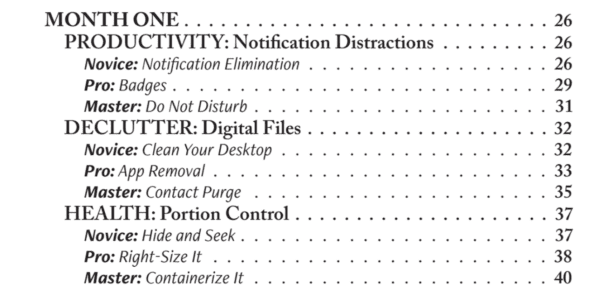Eat. Sleep. Exercise.
Take breaks. Get outside. Drink some water.
How the little things you do can help you make decisions.
Every day we wake up with a full bucket of decisions. Every decision we make moves that decision out of the bucket into the ether. At some point, our brain and our willpower are depleted and no more decisions can be made. We cannot expend any more effort to decide. Then what happens?
We raid the refrigerator and eat what we know won't make us feel good, but it's fast, convenient and requires no thought.
We decide to skip the gym or our workout because we're tired and the thought of changing clothes and doing anything other than sit on our couch is too much to bear.
We argue with our kids, spouse or the TV because we don't have enough left to make considerations.
What happens is we revert to status quo decisions. If an option is chosen for us we take it. It's easy for our brains that way. Studies have shown the more boxes of cereal or jars of jelly to choose from, the less likely a person is going to buy anything and will often walk away. It's probably why my mind turns to mush when I walk into a department store. There's too much to choose from. Just let me shop online where I can narrow it down to exactly what I am looking for or a boutique where the options are far less.
We get decision fatigue.
If we compare decisions in our minds to a workout, it goes like this. If you start a run and it lasts 30 minutes, you can probably sustain that pace and finish at the same speed (if you're a runner and fit). If you are running a marathon, maintaining the same pace for 3-4 hours takes a lot of work and energy. You may be able to keep pace but it requires much more effort the last 6-10 miles. Most people can't maintain the pace of their first half and end up slowing down at the end. It's the same with your brain. You start out every morning refreshed and a bucket full of decision-making abilities. The more strenuous your decisions, or the more you have to make in volume, the more you will drag and slow down by the end of the day.
Inserting renewal breaks into your day can help throw a few more decisions back into the bucket. As stated in The Corporate Athlete, it's not the amount of stress a person puts on himself that gets them, but the lack of frequency and quality of renewal breaks. When you take a break, whether it's a nap, exercise, meditation or simply just stopping whatever you are doing and going for a 10-minute walk, your odds of making smart decisions greatly increase. Need to look over a contract or job offer late in the afternoon? Be sure to take a renewal break first.
Baba Shiv from Stanford School of Business states that morning is the best time to make difficult decisions because that's when your natural levels of serotonin and dopamine are high. You are less risk-averse and can make the hard decisions like whether or not to sign a contract or purchase a house. In the afternoon your serotonin levels drop so you are more likely to opt for the status-quo bias or indecision.
What else affects decision-making?
- Good quality sleep – Increases serotonin.
- Exercise – Releases a precursor to serotonin.
- Breakfast – Good quality and high protein helps amino acids get across the blood brain barrier and sustains the serotonin release longer than a high-carb, high-sugar, low quality breakfast.
- Short naps – 10-20 minutes of sleep can increase your energy levels.
- Hunger and thirst – leads to making higher-risk choices.
- Full bladder – more likely to choose low-risk options and avoid impulsive decisions.
- Proper ventilation – the higher the CO2, the more our cognitive abilities decrease. Open the windows or get outside for a quick break.
What can you do this week to help increase your ability to make decisions?
Click here for a short vid on Willpower for parties and holidays.


